News
Trump’s ‘migrant crime’ idea is vicious and legal immigrants could suffer

The president-elect had said on the campaign trail that he wants to deport as many as 20 million people
On the campaign trail, president-elect Donald Trump promoted a rallying cry demanding mass deportations of as many as 20 million people – a hyper-inflated statistic that exceeds the estimated total of undocumented population in the US by millions, suggesting he might go so far as to round up immigrants in the country who have legal protections, too.
But despite the US already having the largest immigration detention system worldwide, mass deportations on that scale would require an enforcement regime that doesn’t yet exist. Case in point: in Trump’s first term, authorities removed about 1.5 million people over four years, leveling a devastating toll on the families involved but falling far short of the mass repatriations Trump had aspired to back then.
To multiply that number exponentially this time around would require resources, personnel and funding that are absent from the current immigration system. Alternatively, taking a more incremental approach to deport even a million people a year would cost taxpayers somewhere around $88bn annually – or nearly $1tn over more than a decade.
So, as stump speeches evolve into more concrete plans during the presidential transition, Trump and his team have coalesced around several demographics to focus on detaining and deporting first (although if your grandmother gets swept up as collateral damage, Trump’s incoming border czar doesn’t seem to mind). One of their highest stated priority demographics: “criminal” immigrants.
It’s true that some immigrants commit crimes, and that a handful of particularly heinous attacks in recent memory have made that front-of-mind. But Trump’s fixation on what he’s labeled “migrant crime” supposedly overtaking the nation is not only untrue but it belies the fact that, historically, immigrants commit offenses at lower rates than native-born Americans. For immigrants who have yet to earn US citizenship, there’s a clear and at times existential incentive to remain on the right side of the law: deportation could mean returning to a country where their lives or livelihoods might be at risk.
Yet after Trump and his surrogates have so often used “criminals” as the example of their immigration enforcement priorities – especially when persuading non-base audiences, their argument has proved persuasive to many, and even to a subset of immigrants.
Some want to believe that the vast majority of non-citizens who have worked hard, paid taxes and otherwise led upstanding lives in the US have little to fear. That the people who will be deported aren’t friends, neighbors, family members, co-workers or even themselves, but dangerous others who somehow “deserve” it.
Trump has already unleashed a world of panic and pain against any immigrant – legal or undocumented – who he decides doesn’t belong in his America
Instead, as soon as day one of Trump’s second term, the administration is expected to reverse current policy that prioritizes people who pose threats to national security, border security and public safety for immigration enforcement. That could potentially force officials to revert to the chaotic situation under Trump’s first term, when undocumented immigrants were broadly targeted and the country’s finite law enforcement resources were diverted away from real risks.
Then, if Trump wants to make good on his campaign promise quickly, his earliest mass deportations may at least in part involve those most easy to locate – such as immigrants already in federal detention facilities, about 60% of whom have no criminal record (while many more detainees only have minor infractions).
Other low-hanging fruit to pick up, detain and deport include people who report to their immigration check-ins, change their home addresses in government databases when they move and go into work before getting caught up in a raid – in short, people playing by the rules and trying to make a living, some of whom may have been in the US for decades and buoy up the economy.
Even the “criminals” Trump has in mind for his mass deportations may not be who most Americans are envisioning. During the election, Trump made unsubstantiated and bizarre remarks about the US being a “dumping ground for the whole world to put their criminals into”. He claimed with no evidence that the newcomers arriving today, the overwhelming majority of whom are seeking protection or a better life, are actually coming from prisons and mental institutions in their home countries. And, late in the race, his campaign homed in on two cities roughly 1,200 miles apart – Aurora, Colorado, and Springfield, Ohio – to constantly portray migrants, and in particular migrants of color, as threats to Americans’ safety.
For Aurora, Trump used about a dozen arrests of Venezuelans allegedly linked to a transnational gang to declare the city a “war zone” and announce an impending deportation operation named after the Colorado suburb. With a fifth of Aurora’s residents foreign-born, mothers are now crying every day after they drop off their kids at school, unsure of what Trump’s return to the presidency will mean for their family. Latinos in the community are even expressing concerns about gathering together in groups, in case of a raid.
In Springfield, Trump’s vice-presidential pick, JD Vance, insistently connected the city’s large Haitian immigrant population with an uptick in the murder rate – never mind that the local county’s Republican top prosecutor said that in his 21-year career, not a single Haitian had been involved in a murder case there.
After Trump and Vance used their national platform to disparage Springfield and its immigrant residents, the city received bomb threats explicitly based in anti-immigrant hate. Now, members of Springfield’s Haitian community – many of whom are in the US legally – are moving elsewhere, afraid that staying put will mean deportation come January.
In Aurora, Springfield and the rest of the country, Trump’s “criminals” are whoever he wants them to be.
And while he may not have the infrastructure needed to repatriate as many millions of people as he would hope, Trump has already unleashed a world of panic and pain through his looming threat of mass deportations and family separations against any immigrant – legal or undocumented – who he decides doesn’t belong in his America.
News
Trump Nominates Conservative Lawyer Harmeet Dhillon To Lead DOJ Civil Rights Division
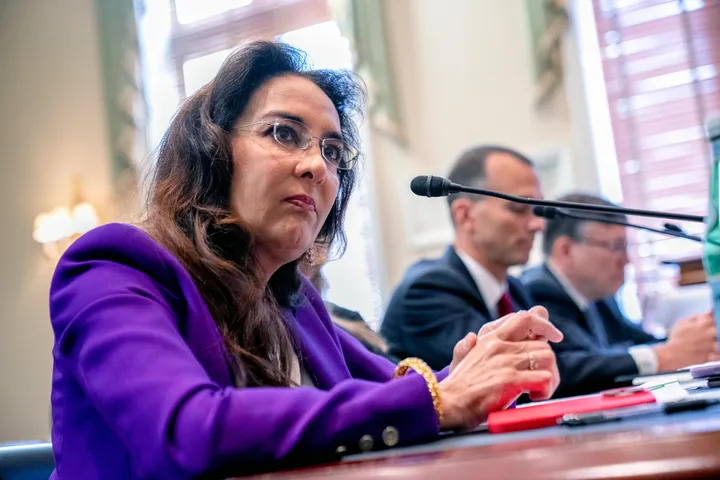
Harmeet Dhillon was chosen by the president-elect to replace Kristen Clarke on the Justice Department’s civil rights efforts.
President-elect Donald Trump announced on Monday that he plans to nominate a conservative California attorney to lead a critical division of the Department of Justice.
Harmeet Dhillon, a former vice chairwoman of the California GOP and a national committeewoman for the Republican National Committee, was selected by Trump to serve as assistant attorney general for civil rights at the Justice Department. She would replace Kristen Clarke, who became the first woman and first Black woman to run the division in 2021.
Trump, who described Dhillon as one of the “top Election lawyers” in the country in his Truth Social announcement, said that she would have a large role in voting rights enforcement.
“Throughout her career, Harmeet has stood up consistently to protect our cherished Civil Liberties, including taking on Big Tech for censoring our Free Speech, representing Christians who were prevented from praying together during COVID, and suing corporations who use woke policies to discriminate against their workers,” he wrote.
Dhillon combated stay-at-home orders during the COVID-19 pandemic. She filed several lawsuits against government-level regulations, arguing there was overreach. The lawsuits Dhillon filed came after Democratic California Gov. Gavin Newsom became the first governor to issue statewide stay-at-home orders to shut down nonessential activities and interests to combat the spread of the coronavirus.
In 2018, Dhillon founded the conservative nonprofit The Center for American Liberty, which has filed lawsuits challenging vaccine requirements and trans-inclusive school policies. Most notably, Dhillon currently represents Chloe Cole, a young activist who sued Kaiser Permanente in California after she detransitioned from male to female. Cole has rallied alongside Republican politicians and conservative media figures, and has testified in support of dozens of state laws restricting access to gender-affirming care for trans youth.
Dhillon is highly critical of blue states that aim to uphold and protect rights for transgender people in light of ongoing legislative attacks. She said Maine’s “shield” law, which protects reproductive health care providers and trans people, is “unconstitutional” and expressed concerns about future protections in California.
A staunch opponent of abortion herself, the attorney also unsuccessfully represented anti-abortion activist David Daleiden, who in 2016 used a fake driver’s license to pose as a biomedical company executive and tried to buy fetal tissue from Planned Parenthood, in an effort to accuse the health care provider of selling tissue for profit.
Dhillon, who was born in India and is a practicing Sikh, has faced pushback from fellow Republicans due to questions of her faith. After she announced in 2022 that she would challenge RNC Chair Ronna McDaniel for her position, several members of the RNC circulated a video of Dhillon opening a 2016 Republican National Convention with a Sikh prayer. In a letter to Alabama Republicans in 2023 responding to the incident, Dhillon addressed concerns about her faith and slammed McDaniel’s leadership. Alabama Republican Chris Horn questioned how Dhillon’s religion would impact policy to NBC. McDaniel condemned attacks on religion but told Politico her allies questioned how Dhillon’s faith would impact the party.
Last year, former Fox News host and conservative political commentator Tucker Carlson hired Dhillon to represent him in a gender discrimination lawsuit by his former producer, Abby Grossberg. The ensuing settlement resulted in Fox paying Grossberg $12 million.
“I’m extremely honored by President Trump’s nomination to assist with our nation’s civil rights agenda,” Dhillon said in a post on X (formerly known as Twitter). “It has been my dream to be able to serve our great country, and I am so excited to be part of an incredible team of lawyers led by @PamBondi. I cannot wait to get to work!”
News
Trump’s Utterly Absurd Take On Birthright Citizenship Involves Walking Infants
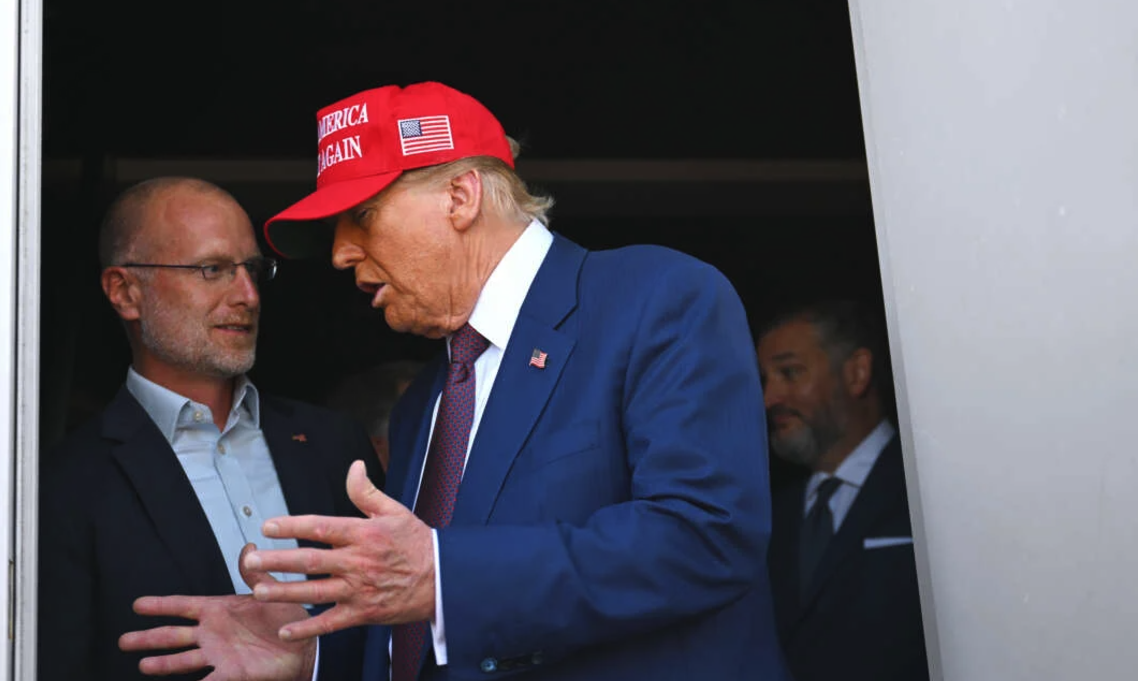
The president-elect appeared very confused about how American citizenship is conferred.
In a freewheeling interview with NBC News Sunday, President-elect Donald Trump offered a head-scratching explanation for his plan to wage an attack on birthright citizenship.
“Did you know, if somebody sets a foot — just a foot, one foot, you don’t need two — on our land, congratulations, you are now a citizen of the United States of America,” Trump said, when discussing birthright citizenship.
“Yes, we’re going to end that, because it’s ridiculous,” he added.
Trump appeared to describe a hypothetical scenario in which a woman would give birth to an infant who — either capable of walking at birth or helped along by someone eager to win a bet — would set one foot on American soil and the other in either Mexico or Canada.
It is also possible Trump was imagining an infant hopping or standing on one leg. Neither scenario is plausible.
Trump also repeatedly asked whether the interviewer, Kristen Welker of “Meet the Press,” knew that the United States was the only country that conferred citizenship by birthright.
“We’re the only country that has it, you know,” Trump said. “You know we’re the only country that has it.”
Birthright citizenship is commonly recognized in the Americas, including in Canada and Mexico. Also known by its Latin legal term as “jus soli,” it is the concept of conferring citizenship by birth in a given country. Most countries instead recognize “jus sanguinis,” which instead confers citizenship based on the nationality of a person’s parents.
Welker did not challenge Trump’s utterly wrong description of how birthright citizenship works or that the United States is not alone in recognizing it. But she asked whether Trump intended to enact his proposed change through executive action.
“Well, if we can, through executive action,” Trump said. “I was going to do it through executive action, but then we had to fix COVID first, to be honest with you.”
Birthright citizenship is protected by the 14th Amendment to the Constitution. The president cannot use executive action to overturn a constitutional amendment, though legal experts expect the Trump administration to challenge the long-settled legal interpretation through the courts.
Trump has spent significant time in southern Florida, which is home to a large Cuban-American community.
He likely came up with this weird description of birthright citizenship by free-associating the issue with the now-defunct policy of allowing Cuban migrants to stay within the United States and pursue citizenship upon touching American soil. The policy was known as “wet-foot, dry-foot.”
During this year’s presidential campaign, Trump repeatedly described immigrants as coming from jails and mental institutions. He was likely resurrecting assertions he heard during the era of the Mariel boatlift four decades ago.
News
Trump Trolls Canadian Prime Minister Justin Trudeau, Stirs Controversy
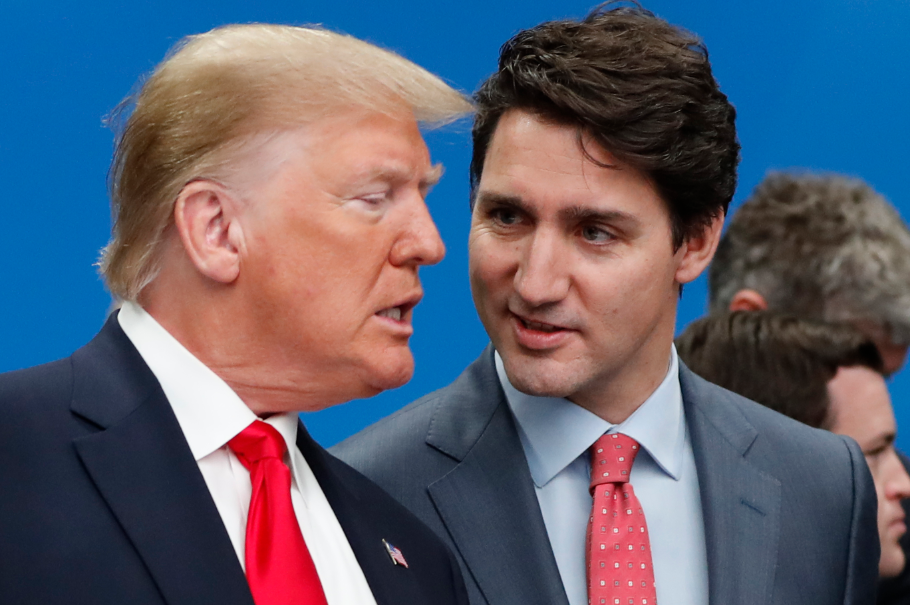
Trump mocks the United States’ northern ally
In a post just after midnight on Truth Social, Trump took aim at Canadian Prime Minister Justin Trudeau with a mocking reference, calling him “Governor Justin Trudeau of the Great State of Canada.”
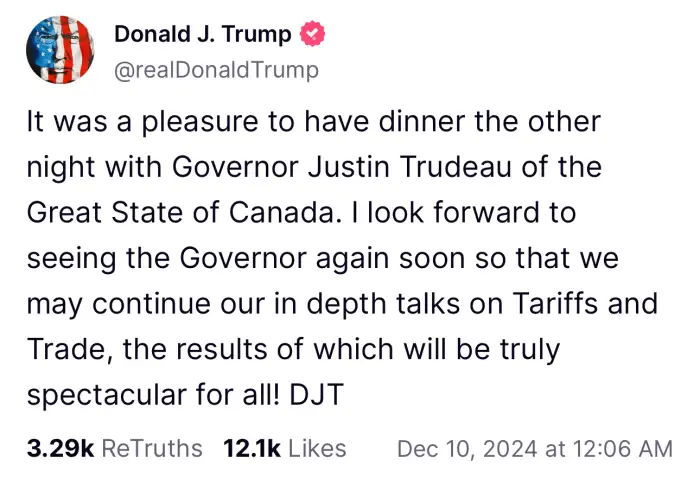
The comment, a throwback to Trump’s past suggestion that Canada might become the 51st U.S. state if they can’t handle his tariffs, is an insult to both Trudeau and Canada.

Trump recently posted an AI image of himself looking into Canada as if to annex it. Trump’s midnight post, claiming to look forward to future discussions on tariffs and trade with “Governor Trudeau,” further stoked tensions with a key ally and makes one question his diplomatic judgment.
Trump’s post undermines the United States’ relationship with Canada. Calling the Canadian leader a “Governor” belittles the sovereignty of a close neighbor and trading partner, and further feeds into the narrative of disrespect that Trump has often displayed toward foreign leaders.
The United States and Canada share deep economic, cultural, and geopolitical ties, and statements like this can jeopardize decades of cooperation. Trump is proving once again he will be an embarrassment to the United States.
-
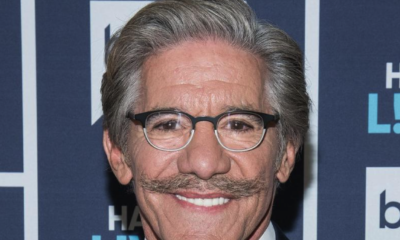
 News11 months ago
News11 months agoGeraldo Rivera Slaps Trump Supporters With A Reality Check After Biden’s Pardon
-
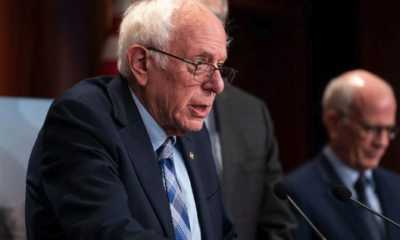
 News11 months ago
News11 months agoBernie Sanders Flips The Script And Praises Trump Picks
-

 Uncategorized11 months ago
Uncategorized11 months agoNaked RFK Jr. Makes Cameo On Wife Cheryl Hines’ Social Media
-

 News11 months ago
News11 months agoPhoto of person of interest with the mask down was the “money shot,” police commissioner says
-
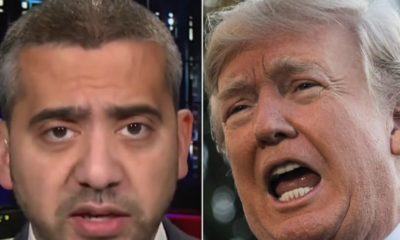
 News11 months ago
News11 months ago‘Banana Republic Stuff’: Mehdi Hasan Nails GOP Hypocrisy Over Trump’s Latest Move
-
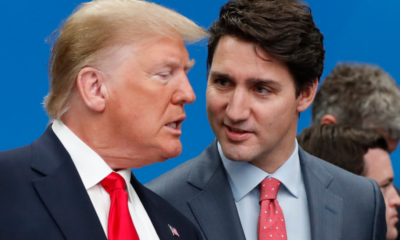
 News11 months ago
News11 months agoBREAKING: Canada just stunned Trump with brutal news after holding an “emergency meeting.” This WON’T end well for Trump…
-
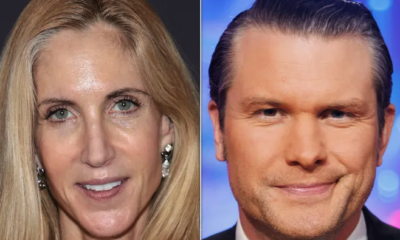
 News11 months ago
News11 months agoAnn Coulter Slams Controversial Trump Cabinet Nominee As ‘Sleazy’ Serial Adulterer
-
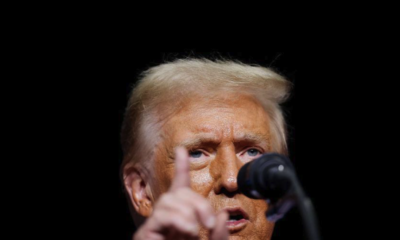
 News11 months ago
News11 months agoTrump Is Using “Unitary Executive” Theory in His Bid to Amass Supreme Power






